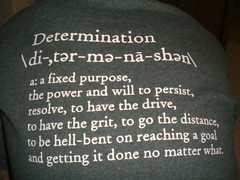
Team Photo
What are STEM subjects and Soft skills? These are the buzz words being used in careers. Everyone is talking about STEM subjects and soft skills, etc – the trouble is, do we know what these are and why they are related?
Also, do we know how to communicate them to a prospective employer, or recruiter?
STEM Subjects
STEM is quite straightforward. This is an acronym for subjects: Sciences, Technology, Engineering and Maths.
I think I have written about STEM subjects before and here I will quote a careers hero of mine, Judith Leeson AM. She says (regarding the obsession with STEM), that these subjects are not the be-all-and-end-all subjects that every student must study, or heaven help you! For every so-called STEM profession or industry there are the industries that support them. So there is merit in studying many other subjects at school.
Think – What do you love? Who do you love? Then you can imagine the jobs/skills that support the STEM professions. For example:
If you love your mobile phone, someone has to design its packaging and transport it to the outlets, etc.
If you love your grandma, you might need to look for a reputable physiotherapist to help her recover from her hip surgery. How will you find the right professional if they don’t have good advertising, professionally printed fliers, good premises with the necessary facilities and products, etc?
These are just two examples of how professions support the STEM industries and therefore how other school subjects and tertiary courses, than STEM, are worthwhile areas of study.
STEM subjects and soft skills are being ‘paired’ as necessary for industry because of the new job types being created in what is being referred to as the new industrial revolution, or Industry 4.0
So first of all I’ll address what are soft skills.
Soft Skills
As for soft skills, also referred to as employment skills and personal attributes, these are what you possess beyond your academic standing in terms of your IQ, your VCE study scores, ATAR, GPA, A’ Level results etc. Employers are showing an increased level of interest in these attributes. They include:
- your reliability
- your ability to work under pressure
- your leadership qualities
- your capacity to be flexible
- your social skills
- your employment ‘literacy’, which refers to relevant verbal, written, technological literacies (arguably these are ‘hard’ skills)
The challenge is then to communicate the ways in which you have demonstrated these qualities in the past, so that the recruiter is enticed to keep your resume in the “maybe interview” folder and not put it into trash. This is where sound advice on how to create good resumes comes into play.
For any job vacancy, whether or not it is in a STEM role or otherwise, job candidates will not be well served if they have their resumes written for them. You will not learn resume writing skills this way and so each time you or your son or daughter applies for a position, the resume needs to be tailored to the vacancy and the specific soft skills required.
So it’s worthwhile paying attention to what are STEM, soft skills, employment skills and personal attributes, as these are what are being demanded in the Industry 4.0 employment era. which is a topic for another blog. But keep the noise in perspective. If year 10 subject choices are proving to generate stress for your child, parents, please be reassured that there are worlds of choices and that your child does not have to bend themselves in half to be something they simply are not.




